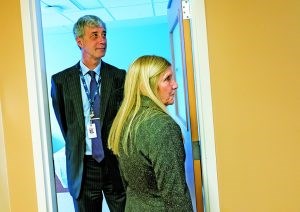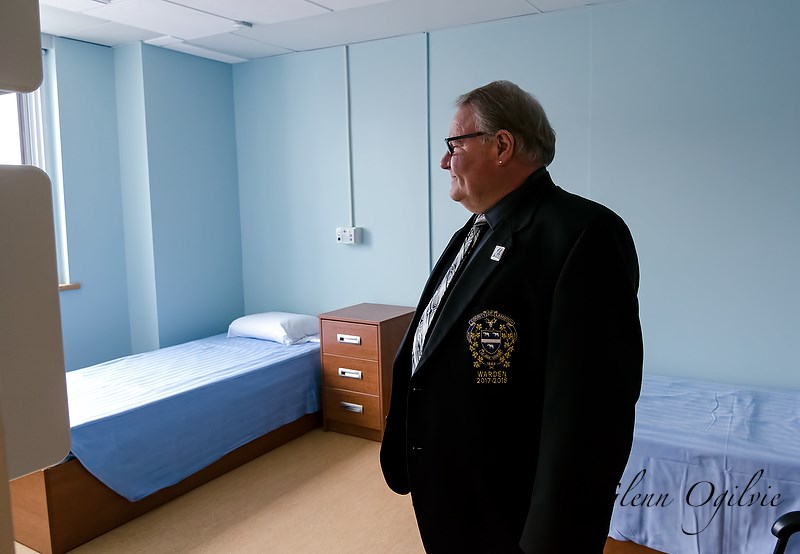Tara Jeffrey
The opening of seven beds at Bluewater Health’s temporary Residential Withdrawal Management facility this week is welcome news to community and health officials, but still just “scratches the surface” of Sarnia’s crippling opioid crisis, police say.
“It’s long overdue,” Sarnia Police Sgt. John Pearce said of the 6th floor facility which officially opened Monday, while a push continues for a permanent, 24-bed, standalone facility.
“Seven beds is great, but even when a permanent centre comes, there’s still going to be a need for more.”
Pearce, who heads up the police’s vice unit, pointed to a recent study showing that Sarnia, Windsor and Chatham have the highest use of prescription opioids in Ontario – and the stats, he said, are getting worse – with a rise in pharmacy robberies, fentanyl-laced drugs and heroin resurgence.
Since 2014, the number of people accessing Bluewater Health’s Community Withdrawal Treatment has more than tripled.
“It’s still not enough… this community is in dire need,” said hospital CEO and president Mike Lapaine, who expected the beds to be occupied at full capacity, immediately.

The 1,600 square-foot renovated space is the result of $445,000 from the province, announced in October.
Residential services are crucial for those trying to withdraw, because otherwise, the emergency department is the only other option, Pearce said.
“Right now, the dead-end is emerg -- if they get there alive,” he said. “And they just want to get out of there; the last thing they want to do is sit in a hallway.”
The temporary facility is not a typical hospital unit; those with acute withdrawal needs are “community clients” rather than patients, and are there on a voluntary basis.
Self-referrals are accepted, along with referrals from community partners, the emergency department and primary caregivers.
With an average stay of five days, clients will be monitored and supported by staff, who will provide appropriate connections upon completion of withdrawal.
The beds will also help alleviate an already congested inpatient mental health unit, which has been at capacity for months. One-quarter of patients admitted to Bluewater Health for mental health have problems with addictions.
Meanwhile, officials hope to have a site selected for a long-awaited permanent facility, by mid-March.
Last year, the hospital received a $200,000 grant from the Ontario government to find a site and begin planning for the facility, which is estimated to cost $8.4 million. Lennard Commercial Realty has developed site requirements and is prepared to accept enquiries on the potential location. Enquiries can be forwarded to Bob Drizis at [email protected] by Jan. 23.
Anyone wishing to access the Residential Withdrawal Management Centre can call 519-464-4487.
If you or someone you know is in distress, contact Lambton Mental Health Crisis Services at 519-336-3445.
